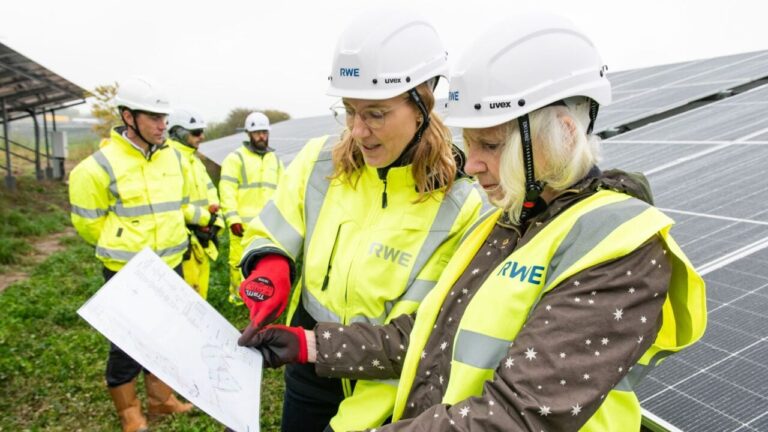Energy producer RWE has announced it has broken ground on four new solar projects in the UK, while also reaffirming its commitment to responsible development.
The company has started construction on the Copse Lodge, Fraddon, Laynes Wood and Wick Farm solar projects, which will have a combined capacity of approximately 200MW. With these developments underway, RWE now has a total of 11 solar projects under construction. The four newly started projects are expected to be operational as early as 2026.
At the same time, RWE has launched the UK Solar Developers Charter, a document setting out the company’s commitments to be a positive force in the communities where it develops solar projects. The charter includes fifteen commitments under four broader categories: good land management, meaningful community engagement and benefits, respect for local heritage and the rural environment, and responsible sourcing, respect for human rights and the environment.
As part of these commitments, RWE pledges to design all its projects to maximize opportunities for local wildlife, ensuring efficient use of land and grid infrastructure by co-locating solar and battery projects where possible, prioritizing the use of local workers and contractors, and ensuring sustainable waste management.
Commenting on the two announcements, Katja Wünschel, CEO of RWE Renewables Europe & Australia, said: “Starting construction on these four new solar farms marks another major step in our journey towards sustainable energy here in Britain. With eleven solar energy projects currently under construction, RWE is making an important contribution to ensuring a cleaner, more sustainable energy future. We are proud to be playing a leading role in supporting the UK’s net zero ambitions and helping to secure affordable, green energy for generations to come. In addition, our new Developers Charter will help define how our projects will not only deliver clean energy, but also leave a positive, lasting legacy on local ecosystems and communities, setting a clear standard for environmental responsibility in the delivery of solar energy. ”
Community involvement and responsible development
In the wake of a number of high-profile building permit denials, the solar industry is looking to explore how it can win local support for proposed developments and clean up the image of solar infrastructure development.
RWE’s UK Solar Energy Developers Charter follows in the footsteps of Solar Energy UK’s ‘Community Engagement Good Practice Guidance’ report released in July this year, which provides a range of case studies demonstrating best practice for developers when dealing with people who living near proposed solar farms. and provides guidelines for a positive development process.
Perhaps the biggest image change the solar industry needs concerns the myth of the former Conservative government, which repeatedly claimed that solar farms posed a threat to food security. Since becoming Secretary of State for the Department of Energy Security and Net Zero (DESNZ), Ed Miliband has worked to debunk this myth, as explored in a previous publication. Solar energy portal blogging.


